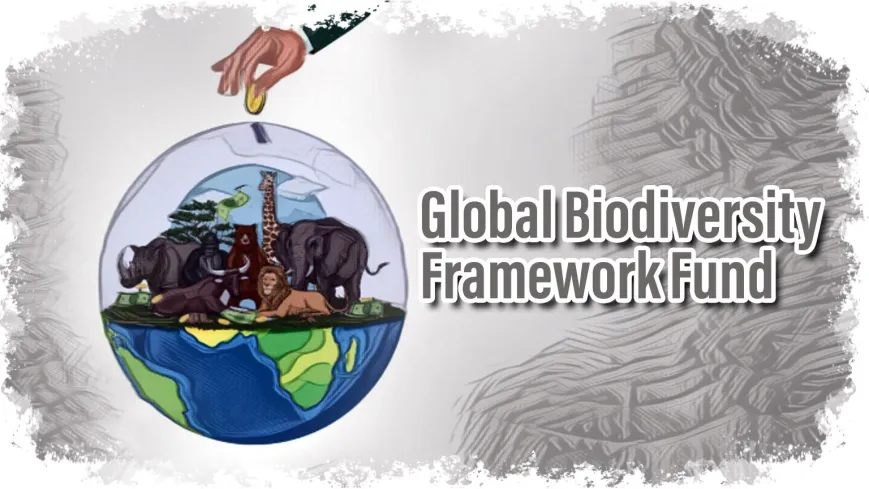
BY ALAPINI BILIKISU ABIODUN
Eight governments pledged an additional $163 million to the Global Biodiversity Framework Fund (GBFF) on Monday, providing new targeted support to countries and communities working to conserve, restore, and ensure the long-term health of wild species and ecosystems.
During the Convention on Biological Diversity’s sixteenth Conference of the Parties (COP16), representatives from Austria, Denmark, France, Germany, New Zealand, Norway, the United Kingdom, and Québec announced new financing for the fund that supports implementation of the Kunming-Montreal Global Biodiversity Framework.
They were joined by representatives of the GBFF’s other early contributors including Canada, Japan, Luxembourg, and Spain, and from countries that have received support to date from the Global Environment Facility-hosted fund, among them Brazil, Gabon, Mexico, and Fiji, plus representatives of Indigenous Peoples and local communities, major philanthropies, and implementing agency partners such as the World Bank.
Please see the donor governments’ joint statement for amounts pledged by country.
“I want to thank the national and subnational donors who stepped forward today to contribute to the Global Biodiversity Framework Fund. We know that the fund is needed now more than ever. We need it to be capitalized to permit resources to flow urgently to the national implementation of the Global Biodiversity Framework,” said Astrid Schomaker, Executive Secretary of the Convention on Biological Diversity. “This is about money and morale. A message of hope and global solidarity.”
“I think this session and the pledges that will come to the GBFF is very important for the next days and the decisions that we will be taking,” said Colombia’s Environment Minister and COP16 President Susana Muhamad. “We all should consider ourselves partners with a common objective, which is actually in this case being able to implement the Kunming-Montreal Global Biodiversity Framework.”
The GBFF was established at the request of parties to the Convention on Biological Diversity’s COP15, and was launched less than a year later at the Seventh GEF Assembly in August 2023. It has streamlined procedures to provide efficient support for developing countries, and can receive contributions from all sources, including public, private, and philanthropies.
“In less than one year, the GBFF has moved from launch to full-speed operation, with projects already reviewed, approved, and funded, and many more in the pipeline. The growing number of governments contributing to the GBFF is a sign of its momentum,” said GEF CEO and Chairperson Carlos Manuel Rodríguez. “Now that the fund is up and running, we have the systems in place to disburse support efficiently and at low cost. We are focused on continued improvements to keep up with the pace of ambition for biodiversity action, while keeping the necessary safeguards to ensure quality and trust for long-term, lasting results for nature.”
The funding announced in Cali included the first financing to the GBFF from a sub-national government.
“The Government of Québec is proud to be the first subnational government to contribute to the Global Biodiversity Framework Fund. If we want to ensure the successful implementation of the Kunming-Montréal Global Biodiversity Framework, and make sure to leave no one behind, we need to fully endorse a whole of society and whole of government approach,” said Martine Biron, Minister of International Relations and la Francophonie, Government of Québec. “Québec is a longstanding contributor in climate cooperation, and we hope that this first substantial financial pledge in biodiversity will inspire other stakeholders to help everyone, especially the most vulnerable countries, to reach our common goal to live in harmony with nature.”
In June 2024, the GBFF Council approved the fund’s first work program, with four projects in Brazil, Gabon, and Mexico, and another 18 project preparation grants approved. In total, 24 developing countries, including 13 Least Developed Countries and Small Island Developing States, are currently accessing support from the fund.
GBFF support helps countries strengthen national-level biodiversity management, policy, governance, and resource mobilization, including blended finance to leverage private sector financing. The fund has a target of having 20 percent of its funding support led by Indigenous Peoples and local communities.






